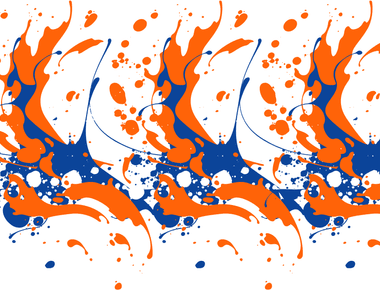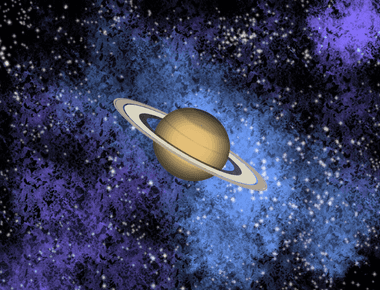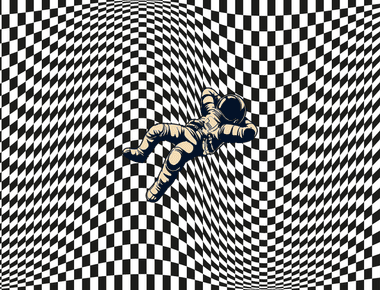
The Critique of Pure Reason: A Summary of Immanuel Kant's Work
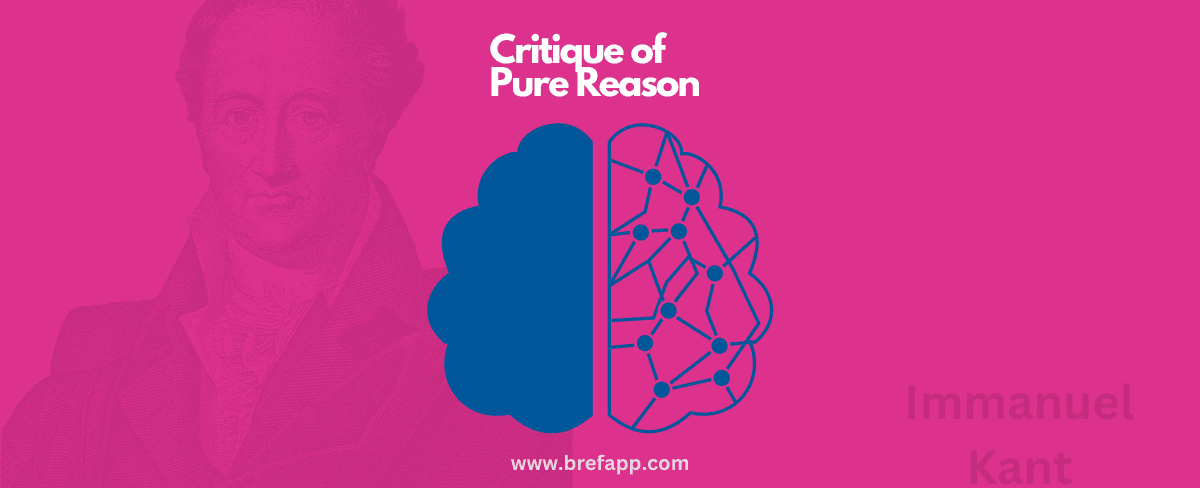
Immanuel Kant (1724-1804) was a German philosopher who is widely regarded as one of the most important thinkers in the history of Western philosophy. Kant’s ideas and arguments have had a profound impact on many areas of thought, including ethics, metaphysics, epistemology, political philosophy, and aesthetics.
However, it is Kant’s work on epistemology, particularly his seminal book “The Critique of Pure Reason,” that is the subject of this article. This work is considered a masterpiece of modern philosophy and has been highly influential in shaping the course of philosophical inquiry in the centuries since its publication.
The purpose of this article is to provide a summary of Kant’s “Critique of Pure Reason,” exploring its key concepts and themes, and highlighting its importance and legacy for philosophy and beyond.
The Background of the Critique of Pure Reason
Kant wrote “The Critique of Pure Reason” during the 18th century, a time of great intellectual and philosophical ferment in Europe. This period is often referred to as the Enlightenment, a movement that emphasized reason, scientific inquiry, and human progress. In particular, Kant was influenced by the work of Enlightenment thinkers such as Rene Descartes, John Locke, and David Hume.
One of the main ideas of the Enlightenment was Rationalism, the belief that reason is the primary source of knowledge and that human beings can use reason to understand the world around them. Rationalists believed that knowledge was a priori, meaning that it could be known without any experience. This approach to knowledge led to a focus on deductive reasoning and the use of logical proofs.
However, the limitations and criticisms of Rationalism and other Enlightenment ideas led Kant to develop his own philosophical system, which he called Critical Philosophy. One of the main criticisms of Rationalism was that it tended to overemphasize the role of reason and ignore the role of experience. This led to a number of problems, such as the inability to explain how we can have knowledge of the world outside our own minds.
Kant’s approach, by contrast, was to focus on the limitations of human reason and to explore the relationship between reason and experience. He argued that there are limits to what we can know through reason alone and that we must also rely on our experiences in order to understand the world around us. This led him to develop the concept of synthetic a priori knowledge, which refers to knowledge that is not based on experience, but is still subject to revision based on empirical evidence.
Kant’s Critical Philosophy represents a significant departure from the Rationalist and Enlightenment ideas that preceded it. By focusing on the limits of human reason and the relationship between reason and experience, Kant’s work laid the foundation for a new approach to philosophy that would have a profound impact on the development of modern thought.
Overview of the Critique of Pure Reason
“The Critique of Pure Reason” is divided into two main parts, the “Transcendental Aesthetic” and the “Transcendental Analytic.” The first part deals with the nature of human perception and intuition, while the second part focuses on the nature of human understanding and the limits of reason.
Kant’s goal in writing this book was to establish the limits of human reason and knowledge. He believed that human beings have a natural desire to know and understand the world around them, but that this desire is limited by the capacity of human reason. Kant sought to identify the limits of reason and to explain how we can still have knowledge of the world beyond these limits.
One of the key concepts in the “Critique of Pure Reason” is the distinction between analytic and synthetic judgments. Analytic judgments are those that are true by definition, such as “All bachelors are unmarried.” Synthetic judgments, on the other hand, are those that add something to our understanding of the world, such as “The sun is shining.”
Kant also distinguished between a priori and a posteriori knowledge. A priori knowledge is knowledge that is independent of experience, such as the knowledge that 2+2=4. A posteriori knowledge, on the other hand, is knowledge that is based on experience, such as the knowledge that the sun is shining.
Kant’s argument in the “Critique of Pure Reason” is that while analytic judgments and a priori knowledge are based on reason alone, synthetic judgments and a posteriori knowledge require both reason and experience. This means that there are limits to what we can know through reason alone, and that we must rely on our experiences in order to have knowledge of the world around us.
The “Critique of Pure Reason” represents a groundbreaking work in the history of philosophy. By exploring the limits of human reason and knowledge, Kant laid the foundation for a new approach to philosophy that continues to shape our understanding of the world today.
The Transcendental Aesthetic
In the “Transcendental Aesthetic” section of “The Critique of Pure Reason,” Kant develops his theory of space and time as a priori intuitions. According to Kant, space and time are not concepts that we derive from experience, but rather they are inherent structures of our minds that shape our perception of the world.
Kant argues that space and time are necessary preconditions for our ability to perceive the world around us. Without these a priori intuitions, we would not be able to organize our perceptions into coherent experiences. He sees space as a three-dimensional structure that provides the framework for our perceptions of objects in the external world. Time, on the other hand, is a linear structure that provides the framework for our perceptions of events.
Kant’s theory of space and time as a priori intuitions has important implications for our understanding of human perception and experience. He argues that our perceptions of the world are not just passive reflections of external reality, but are actively shaped by the structures of our minds. This means that our perceptions are not simply copies of the external world, but are rather constructions that we create based on the inputs that we receive through our senses.
Kant’s theory also implies that our perceptions are limited by the structures of our minds. We can only perceive the world in ways that are compatible with the structures of our minds, and we cannot perceive anything that falls outside of these structures. This has led some philosophers to argue that our perceptions of the world are inherently subjective, as they are shaped by the unique structures of our individual minds.
Kant’s theory of space and time as a priori intuitions is a central component of his philosophy. By emphasizing the role of these structures in human perception and experience, Kant provides a new perspective on the nature of knowledge and the limits of human understanding.
The Transcendental Analytic
In the “Transcendental Analytic” section of “The Critique of Pure Reason,” Kant explores the nature of human understanding and the limits of reason. He begins by distinguishing between analytic and synthetic judgments, as he did in the “Overview” section.
Analytic judgments, as previously discussed, are those that are true by definition, while synthetic judgments are those that add something to our understanding of the world. Kant argues that all synthetic judgments require a concept that is not contained within the subject or predicate of the judgment itself. This concept is what Kant calls the “predicate of the concept” and is what allows us to go beyond what is contained within the definition of the subject.
Kant goes on to argue that there are twelve categories of understanding that are necessary for synthetic judgments. These categories are the ways in which we organize our perceptions and experiences of the world in order to form concepts and understandings. They include concepts such as causality, substance, quantity, and quality.
Kant argues that these categories are a priori concepts that are necessary for us to make sense of our experiences. They are the means by which we synthesize our perceptions into meaningful concepts and understandings. The categories of understanding are not derived from experience, but rather are inherent structures of our minds that allow us to organize and make sense of our experiences.
The categories of understanding, according to Kant, apply to all aspects of human knowledge and experience. They are not limited to any particular field of study or area of inquiry, but rather are universal and necessary for all forms of knowledge. By examining the nature of these categories, Kant sought to establish the limits of human reason and understanding.
Kant’s exploration of the categories of understanding in the “Transcendental Analytic” provides a new perspective on the nature of human knowledge and understanding. By emphasizing the role of these categories in our perception and experience of the world, Kant challenges traditional views of knowledge and provides a framework for understanding the limits of human reason.
The Transcendental Dialectic
In the “Transcendental Dialectic” section of “The Critique of Pure Reason,” Kant critiques traditional metaphysics and philosophical questions that he believed went beyond the limits of human understanding. He argues that many traditional philosophical questions cannot be answered because they are based on concepts that do not have any empirical or experiential foundation.
Kant suggests that many philosophical questions that deal with the ultimate nature of reality, such as the existence of God or the immortality of the soul, are beyond the limits of human knowledge. He believes that these questions cannot be answered because they are based on concepts that go beyond the realm of human experience. Kant argues that our minds are structured in such a way that we can only understand things that are experienced through our senses.
Kant introduces the concept of the noumenal world, which is the reality beyond human perception. He suggests that there is a reality that exists beyond what we can perceive through our senses, but that we can never know it. This is because our minds are structured in a way that limits what we can perceive and understand. While we can never know the ultimate nature of reality, we can still make useful inferences and predictions about the world based on our limited understanding.
Kant argues that the limitations of human reason and understanding should not be seen as a weakness, but rather as a necessary condition for our ability to understand the world. He suggests that by accepting the limits of our understanding, we can avoid making unfounded claims about the ultimate nature of reality and focus on what we can know and understand through our experiences.
Kant’s critique of metaphysics and traditional philosophical questions in the “Transcendental Dialectic” section of the “Critique of Pure Reason” challenges traditional views of knowledge and provides a framework for understanding the limits of human understanding. By emphasizing the unknowable nature of reality beyond human perception, Kant encourages us to focus on what we can know and understand through our experiences, rather than making unfounded claims about the ultimate nature of reality.
Criticisms and Legacy of the Critique of Pure Reason
Despite its significance, Kant’s “Critique of Pure Reason” has also been subjected to various criticisms over time. One of the main criticisms of Kant’s work is that it is excessively complex and difficult to understand. Some philosophers have also criticized Kant’s transcendental idealism, which they see as an overly subjective and idealistic approach to reality.
Another criticism is that Kant’s distinction between analytic and synthetic judgments is not always clear and that his categories of understanding are too rigid and may not apply to all forms of knowledge. Some philosophers have also criticized Kant’s ideas on the limits of human knowledge, arguing that they may be too restrictive and ignore the potential for scientific and technological advancements to expand human understanding.
Despite these criticisms, Kant’s “Critique of Pure Reason” remains a highly influential work in philosophy and other fields. The book laid the foundation for many later developments in philosophy, including phenomenology, existentialism, and critical theory. Kant’s ideas have also had a significant impact on the natural sciences, especially in the areas of epistemology and ontology.
Kant’s ideas on the limits of human knowledge have also had an important impact on the way we understand our place in the world. His work encourages us to recognize the limitations of our understanding and to approach knowledge with a critical and reflective attitude. By emphasizing the importance of reason and empirical evidence, Kant’s ideas have helped shape the modern scientific worldview and have contributed to our understanding of the natural world.
Kant’s “Critique of Pure Reason” is a seminal work in philosophy that continues to influence modern thought in various fields. While it has faced criticisms over time, the book remains an important contribution to our understanding of the nature of knowledge, reality, and the human condition.
FinalThoughts
In this article, we have discussed Immanuel Kant’s “Critique of Pure Reason” and its significance in the history of philosophy. We have provided an overview of Kant’s background, discussed the intellectual and philosophical context of his time, and summarized the main themes and concepts of the book.
We explored Kant’s goal to establish the limits of human reason and knowledge, his ideas on the nature of space and time, and his distinction between analytic and synthetic judgments. We also discussed Kant’s critique of metaphysics and traditional philosophical questions and his concept of the noumenal world.
While Kant’s work has faced criticisms, we have highlighted its enduring impact on philosophy and other fields. The book’s influence on later developments in philosophy and its contribution to our understanding of the natural world and the human condition remain significant today.
Kant’s “Critique of Pure Reason” remains an essential and relevant work in philosophy that continues to shape our understanding of the world and our place in it.
-—
Tags
Related Posts


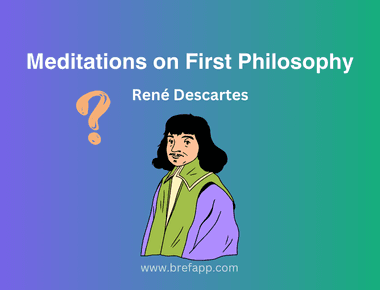

Quick Links
Categories

